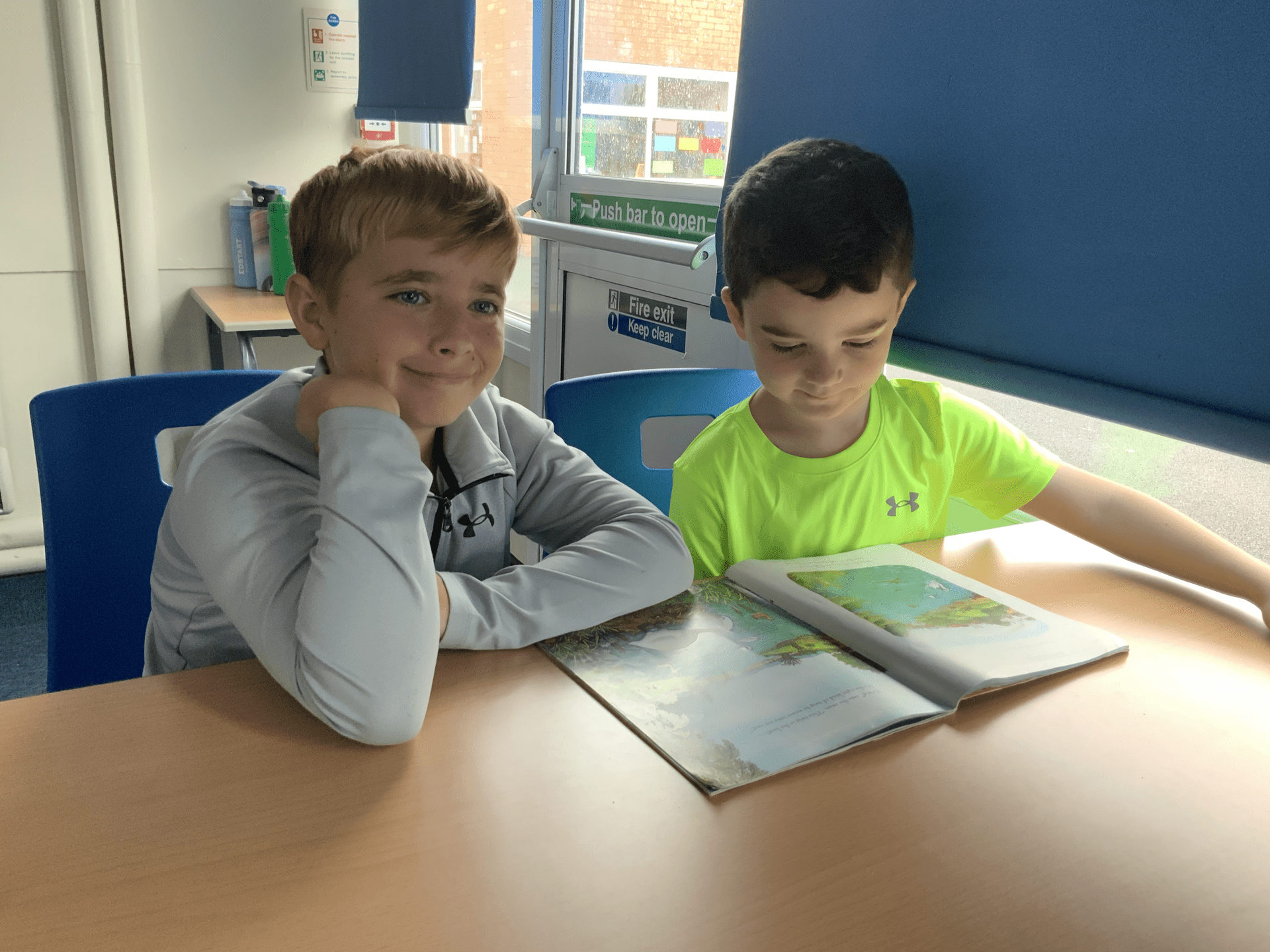Reading
"Once you learn to read,
you will be forever free."
Frederick Douglas
Why is Reading important?
At St Elizabeth’s, we believe that reading is an integral part of our school curriculum and a fundamental life skill that impacts on the acquisition of all knowledge. Reading holds a high status as we recognise that reading is the core skill to everything that children do, thus meaning that everything else depends on it. Reading permeates our whole curriculum; carefully linked texts supplement each topic. Our aim is to ensure that children learn to read rapidly, regardless of their background, and enjoy reading for pleasure. We want every child to be passionate about reading, be hungry to read wide and often, and have the desire to want to learn to read for themselves with a view to becoming lifelong readers. With this in mind, we aim to inspire a true love of reading, whereby our children are enthusiastic, fluent and motivated readers who feel confident to talk about books and authors.
When is Reading taught?
Reading consists of two dimensions: word reading and comprehension. Quality teaching of early reading is essential for children to develop competence, fluency and automaticity when decoding and recognising familiar and unfamiliar words. Phonics is taught systematically in EYFS and KS1 using Read Write Inc, Speed Sounds. Children in KS2 who need to catch up rapidly and children who are new to St Elizabeth’s with English as an Additional language access daily phonics lessons as well as catch up sessions. The school uses a systematic synthetic phonics programme designed to teach children to read and write.
Reading Progression
Our reading progression map shows the progression of all strands and sub-strands of the National Curriculum and the Reception reading requirements as set out in the Early Years Foundation Stage statutory framework and related Development Matters 2021 national guidance. It is fully aligned to other statutory or mandatory documentation in use, including the Read Write Inc phonics programme.
It sets out the required year-by-year curriculum progression for the National Curriculum ‘reading for pleasure’ strand, the ‘word reading’ strand, and the ‘comprehension’ strand. For each of these strands, there is a further detailed breakdown of required progression in each of the component elements, which goes far beyond the level of detail in the National Curriculum, supporting teachers and leaders to have absolute clarity regarding the teaching and learning expectations in our reading lessons.
R
During the early years and Year 1, the primary focus is on supporting our pupils to become fluent readers, through the full implementation of the Read, Write, Inc systematic synthetic phonics programme (RWI). Once pupils have completed RWI, formal comprehension lessons begin.
At St Elizabeth's Catholic Primary School we teach children to comprehend using three types of reading lessons:
As well as these lessons, children engage in a daily Vocabulary Instruction.
Click the links for more information regarding the content and structure of these lessons.





